 Àngels López
Àngels López
“Deuwatts: Enginyeria biomèdica”
 Yesterday, in betevé’s “Deuwatts” programme devoted to biomedical engineering, they featured interviews with Elisabeth Engel and Sergi Rey.
Yesterday, in betevé’s “Deuwatts” programme devoted to biomedical engineering, they featured interviews with Elisabeth Engel and Sergi Rey.
IBEC part of RIS3CAT community to accelerate 3D printing projects
 This month saw the kick-off of the RIS3CAT LLAVOR 3D Community, a partnership of Catalan entities – including IBEC – which will develop projects in additive manufacturing and 3D printing.
This month saw the kick-off of the RIS3CAT LLAVOR 3D Community, a partnership of Catalan entities – including IBEC – which will develop projects in additive manufacturing and 3D printing.
Coordinated by Leitat, and part of the RIS3CAT strategy of research and innovation for the smart specialization of Catalonia, the Community will bring together 31 SMEs, large companies, research centres and universities. Together they’ll work on four projects, ultimately accelerating their development and adoption by the industrial sector to improve competitiveness.
Physical forces regulate cell division
 Researchers at IBEC have discovered that cell division in epithelial tissues is regulated by mechanical forces.
Researchers at IBEC have discovered that cell division in epithelial tissues is regulated by mechanical forces.
This revelation could potentially open avenues to a greater understanding of the uncontrolled proliferation of cancer cells in tumors, and their possible regulation by means of physical forces.
Publishing in the June edition of Nature Cell Biology, the research group of ICREA professor Xavier Trepat, group leader at IBEC and associate professor at the University of Barcelona (UB), describe how the mechanical state of epithelial tissues – the continuous sheets of cells that cover all the exposed surfaces of the body – is related to the cell cycle and cell division.
A full house for nanotoxicity day
 Yesterday Nanomed Spain-organised ‘Jornada sobre Nanotoxicidad’ (Workshop on Nanotoxicity) welcomed almost 100 attendees from all over Spain.
Yesterday Nanomed Spain-organised ‘Jornada sobre Nanotoxicidad’ (Workshop on Nanotoxicity) welcomed almost 100 attendees from all over Spain.
The day focused on a new discipline, the study of toxicity produced by the effect of nanoparticles and nanomaterials. Nanotoxicity has emerged as manufactured nanoparticles can have properties and effects that are very different from those of the same materials in conventional sizes, or can have the same dimensions as certain biological molecules and interact with them, posing new risks to health.
“La bioenginyeria millorarà les nostres vides”
 An article by IBEC director Josep Samitier explaining what bioengineering is and how it can advance health and quality of life appeared in La Vanguardia today.
An article by IBEC director Josep Samitier explaining what bioengineering is and how it can advance health and quality of life appeared in La Vanguardia today.
Super-resolution imaging guides the design of biocompatible microswimmers
 Two IBEC groups have clubbed together to combine their expertise and reveal new knowledge that could advance the design of micro- and nanomotors for applications in health.
Two IBEC groups have clubbed together to combine their expertise and reveal new knowledge that could advance the design of micro- and nanomotors for applications in health.
By harnessing the unprecedented resolution of Lorenzo Albertazzi’s group’s STORM microscope, Samuel Sánchez’s group – in collaboration with Erik Schäffer’s group at the University of Tübingen – have been able to reveal new information about how their enzyme-powered nanomotors achieve motion.
PhD position in Cell and tissue Dynamics

Application Deadline: 28/05/2018
Ref: PH-XT
The Integrative cell and tissue dyamics group at the Institute for Bioengineering of Catalonia (IBEC) is looking for Pre-doctoral Researcher candidate to participate in the research of study the mechanobiology of liver fibrosis.
PhD position in Smart Nano-bio-devices

Application Deadline: 28/05/2018
Ref: PH-SS
The nanodevices group at the Institute for Bioengineering of Catalonia (IBEC) is looking for a Predoctoral Candidate to participate in the research of “Fundamental aspects of enzyme-powered micro- and nanomotors’ propulsion”.
IBEC group leader elected member of EMBO
 IBEC group leader and ICREA research professor Xavier Trepat has been elected as a Member of EMBO, the European Molecular Biology Organisation.
IBEC group leader and ICREA research professor Xavier Trepat has been elected as a Member of EMBO, the European Molecular Biology Organisation.
EMBO’s members are 1,800 leading researchers that promotes excellence in the life sciences, and new ones are elected annually in recognition of their contributions to scientific excellence. Of the 62 researchers from 24 countries to receive membership this year, Xavier is one of the only two researchers in Spain.
The Integrative Cell and Tissue Dynamics group leader is IBEC’s first full EMBO Member, and one of just 79 based in Spain. In 2016 IBEC group leader Pere Roca-Cusachs was accepted into the EMBO Young Investigator Programme.

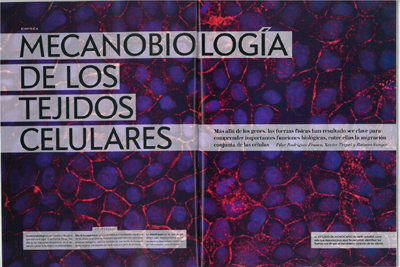
 An article by IBEC researchers Pilar Rodríguez, Xavier Trepat and Raimon Sunyer about the importance of physical forces in understanding biological function appears in the June edition of Investigación y Ciencia, the Spanish-language version of Scientific American magazine.
An article by IBEC researchers Pilar Rodríguez, Xavier Trepat and Raimon Sunyer about the importance of physical forces in understanding biological function appears in the June edition of Investigación y Ciencia, the Spanish-language version of Scientific American magazine.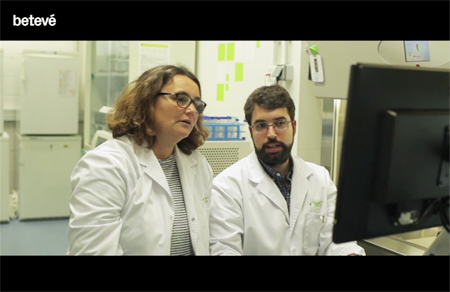
 Yesterday, in betevé’s “Deuwatts” programme devoted to biomedical engineering, they featured interviews with Elisabeth Engel and Sergi Rey.
Yesterday, in betevé’s “Deuwatts” programme devoted to biomedical engineering, they featured interviews with Elisabeth Engel and Sergi Rey. 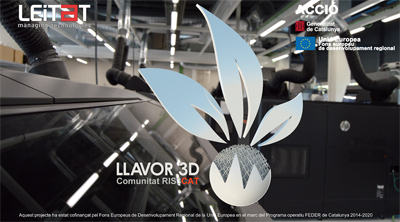
 This month saw the kick-off of the RIS3CAT LLAVOR 3D Community, a partnership of Catalan entities – including IBEC – which will develop projects in additive manufacturing and 3D printing.
This month saw the kick-off of the RIS3CAT LLAVOR 3D Community, a partnership of Catalan entities – including IBEC – which will develop projects in additive manufacturing and 3D printing.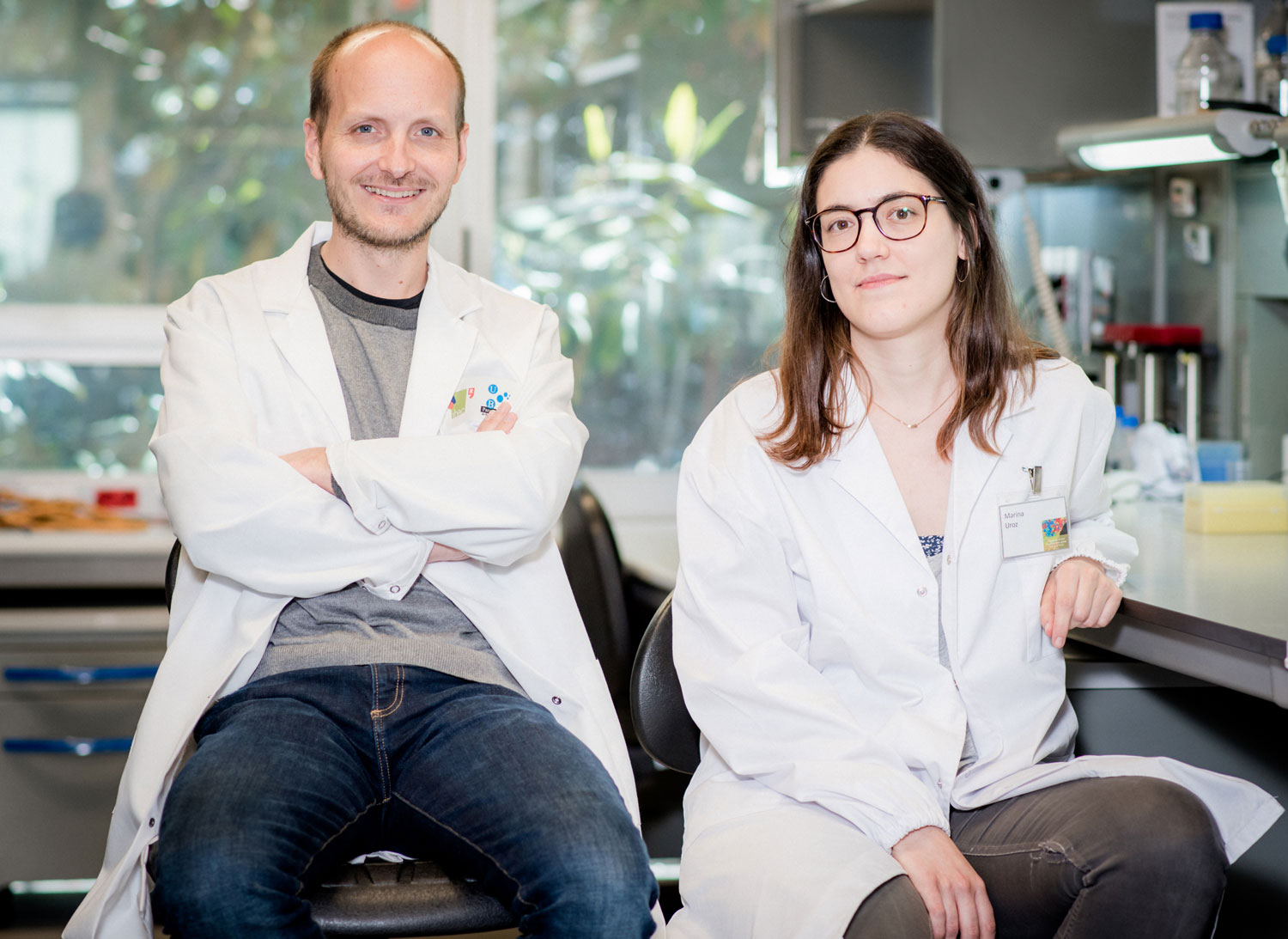
 Researchers at IBEC have discovered that cell division in epithelial tissues is regulated by mechanical forces.
Researchers at IBEC have discovered that cell division in epithelial tissues is regulated by mechanical forces. 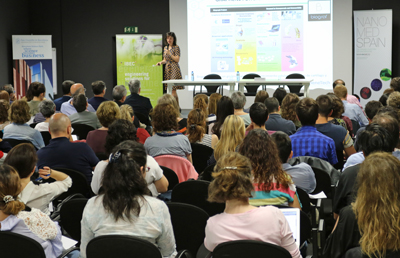
 Yesterday Nanomed Spain-organised ‘Jornada sobre Nanotoxicidad’ (Workshop on Nanotoxicity) welcomed almost 100 attendees from all over Spain.
Yesterday Nanomed Spain-organised ‘Jornada sobre Nanotoxicidad’ (Workshop on Nanotoxicity) welcomed almost 100 attendees from all over Spain.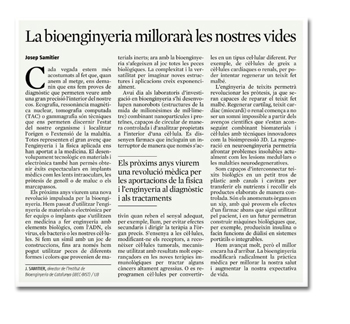
 An article by IBEC director Josep Samitier explaining what bioengineering is and how it can advance health and quality of life appeared in La Vanguardia today.
An article by IBEC director Josep Samitier explaining what bioengineering is and how it can advance health and quality of life appeared in La Vanguardia today.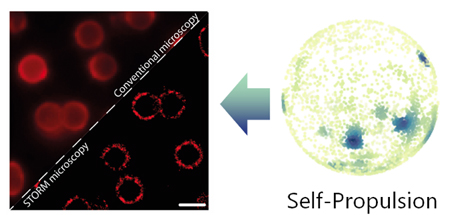
 Two IBEC groups have clubbed together to combine their expertise and reveal new knowledge that could advance the design of micro- and nanomotors for applications in health.
Two IBEC groups have clubbed together to combine their expertise and reveal new knowledge that could advance the design of micro- and nanomotors for applications in health.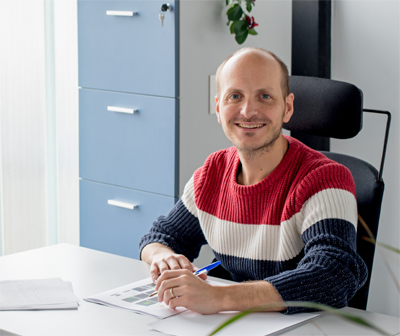
 IBEC group leader and ICREA research professor Xavier Trepat has been elected as a Member of EMBO, the European Molecular Biology Organisation.
IBEC group leader and ICREA research professor Xavier Trepat has been elected as a Member of EMBO, the European Molecular Biology Organisation.